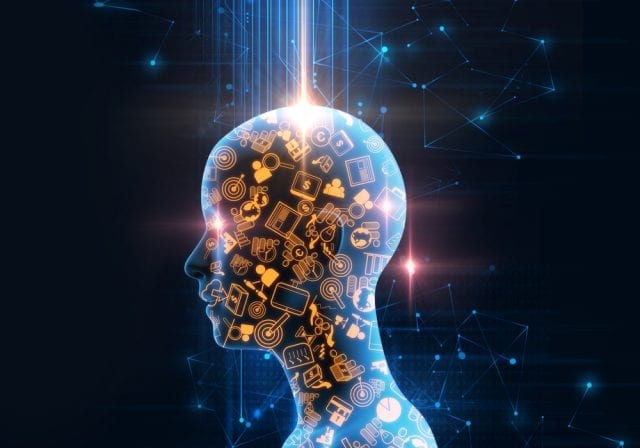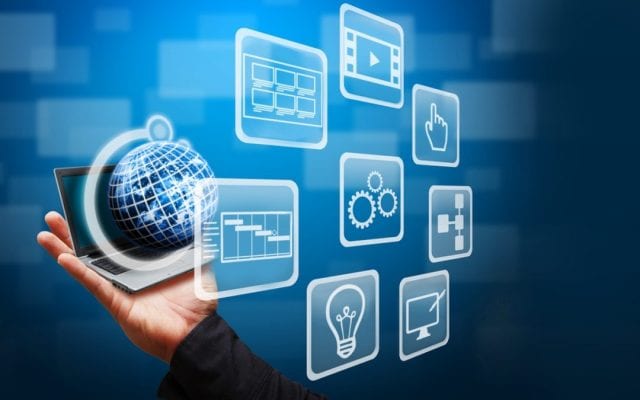
Artificial intelligence is a thriving industry, but while a lot of attention is placed on what happens behind the scenes – the people who design artificial intelligence systems – it’s important that we also keep an eye on the front end evolution. As artificial intelligence systems come into play in businesses and schools, they’re changing how workers do their jobs and how classrooms function.
These 4 industries have seen particularly dramatic transformations in recent years, and this is just the beginning.
Real Estate And Lending

Real estate has long been considered a highly interpersonal field, relying heavily on the expertise of agents working directly with their clients to make the perfect match. With the rise of artificial intelligence, though, real estate offices are now equipped with systems that can match buyers with relevant properties and reduce the time and costs associated with buying a home. Some experts suggest that this actually makes the system more personal, rather than less, but agents need to be attentive to how they fit into this equation in terms of supporting their clients.
In addition to matching clients with properties, or connecting sellers with their ideal buyer, artificial intelligence is also shaping how people finance their homes. The majority of lenders intend to adopt artificial intelligence systems within the next several years. These systems are designed to make lending more objective and to simplify what is often a high-stress process. By making lending more objective, artificial intelligence could also help remedy some of the historic damage caused by redlining and other discriminatory lending practices, the effects of which are still felt today.
Education And E-Learning

Education has steadily gone high tech over recent years, particularly at high levels and for independent learners. In fact, e-learning platforms are quick to adopt tech trends like gamification, virtual and augmented reality, and, of course, artificial intelligence. These tools make education more engaging for students, but their reach doesn’t stop there. At this point, artificial intelligence models are also predicting student learning, an ability that has the possibility to improve education interventions and improve performance and comprehension.
Part of what is so interesting about the intersection of education and artificial intelligence is that such tools are transforming how educators and policymakers approach the classroom – there’s been much discussion about whether e-learning systems might help minimize educational inequalities – that’s not the only shift. It’s also shaping what people want to learn and e-learning can support those who want to learn more about artificial intelligence. As an e-learning topic, artificial intelligence is experiencing a popularity boom precisely because of its broad applications. These courses provide the skills to branch out into careers in a range of industries. For more information visit Getsmarter.com.
Healthcare And Medical Research

Great healthcare requires attention and precision, but many providers are overworked and facilities are understaffed. It’s no surprise, then, that doctors are desperate for good artificial intelligence. Having broken through the basic problem of image recognition, the field needs larger, more diverse annotated data libraries to ensure more accurate diagnostic and treatment outcomes – but not because they question their own skills or accuracy.
No, when doctors wish for better artificial intelligence, what they’re really asking for is to have their face-to-face patient time restored – research has shown that there aren’t enough hours in the day for doctors to complete all of their patient care, paperwork, and additional administrative duties. In today’s medical system, only those doctors equipped with artificial intelligence-powered diagnostic systems who get to re-engage with the human side of medicine, escaping the constant loop of rushed, fifteen-minute appointments. Over the last few decades, as administrative responsibilities have expanded, pressure on doctors has actually eroded patient trust in the medical system.

It’s important to note that it’s not only doctors who are benefiting from increased use of artificial intelligence in healthcare. For many patients, artificial intelligence is synonymous with freedom. Implantable, connected technology allows doctors to monitor patients remotely, while still allowing them to go about their daily lives. For example, patients who have a history of irregular heart rhythms may be fitted with an implantable loop recorder that monitors these rhythms for long-term monitoring, and which are more accurate and less bothersome than a Holter monitor, which has to be worn externally on a harness.
Transportation And Shipping

Despite the way it’s presented on the news, we’re still a long way from the sort of artificial intelligence that would enable self-driving cars to overtake our highways. That doesn’t mean that such systems aren’t influencing the transportation and shipping industry, though. In airports, for example, sensors monitor wait times at security checkpoints and help staff direct travelers to shorter lines. Additionally, a smaller number of airports are using facial recognition at Customs and Border Control, and about 7% have installed artificial intelligence-powered boarding gates, eliminating the need for gate agents.
On the industrial side of things, increased use of artificial intelligence software has enabled much greater implementation of predictive shipping, getting everything from industrial supplies to basic grocery stocks to their destination without the conventional ordering process. Predictive shipping looks at the data from past sales, as well as market information about current trends to approximate demand in any given location. While it’s not a perfect process, predictive shipping can help companies know when to increase or decrease production and help prevent any major gaps, positive or negative, between the amount of product in stores and the amount in demand.

From the perspective of transportation and shipping companies, improved artificial intelligence has done the most to secure the cold chain – the system involved in shipping refrigerated goods. Overall, there’s been an increased demand for these services, but when you’re working with perishables, there’s no room for error. Those working within the cold chain system have steadily found ways to use system data to decrease cooling costs, as well as embracing artificial intelligence’s ability to group and route deliveries to minimize spoilage.
Artificial intelligence is the engine of a changing economy and educational system, and there’s no denying its importance at this point. Whether you’re interested in working with these tools or building them, or just curious about how the modern world works, it’s a great time to explore artificial intelligence more deeply.








